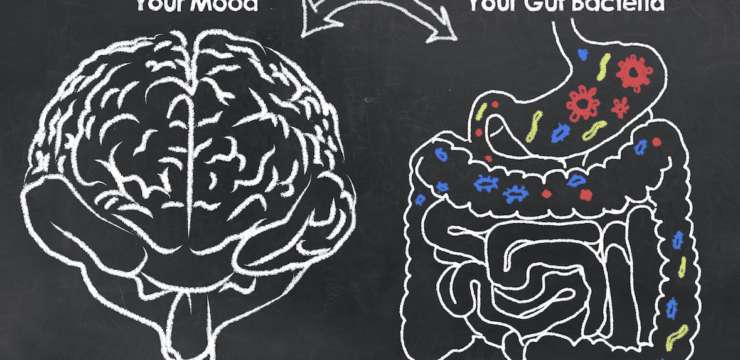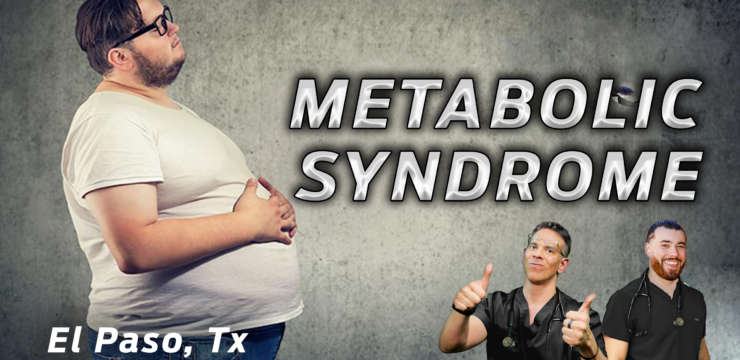
Table of Contents
Gut Neuropathies Unraveled: Holistic Care for Better Digestion

Gut neuropathies, encompassing enteric and autonomic neuropathies, arise when the nerves controlling digestion are damaged, leading to issues like gastroparesis, constipation, or diarrhea. These conditions disrupt the digestive process, impacting nutrient absorption and overall well-being. Often linked to chronic illnesses such as diabetes or autoimmune disorders, gut neuropathies present complex challenges that require a holistic approach. At the El Paso, TX Health Coach Clinic, functional medicine and wellness strategies focus on addressing root causes to restore gut health naturally. This article explores the mechanisms, symptoms, diagnostics, and integrative solutions for gut neuropathies, emphasizing personalized care.
The Enteric Nervous System and Its Challenges
The enteric nervous system (ENS), a network of neurons within the digestive tract, regulates motility, secretion, and absorption. Known as the gut’s “second brain,” it communicates with the central nervous system via the vagus nerve. When damaged—termed enteric neuropathy—this system falters, causing food to linger in the stomach or move erratically through the intestines. Autonomic neuropathy, affecting involuntary functions, further complicates digestion by impairing nerve signals that control gut muscles (Stanford Health Care, n.d.).
Nerve damage disrupts the gut’s ability to maintain a healthy barrier, leading to inflammation or bacterial overgrowth. Research shows that oxidative stress, immune attacks, or nutrient deficiencies can harm enteric neurons and glia, altering digestion and systemic health (McClurg et al., 2024). These changes often compound chronic conditions, making comprehensive care essential.
Root Causes of Gut Neuropathies
Diabetes is a leading cause, with high blood sugar damaging nerves and blood vessels in the gut. This affects gastric motility, often resulting in gastroparesis, where the stomach empties slowly (Meldgaard et al., 2015). Autoimmune disorders, such as lupus or paraneoplastic syndromes, trigger antibodies that attack gut nerves, causing motility issues or pseudo-obstruction (Camilleri et al., 2021).
Infections, including viral gastroenteritis or parasitic invasions, can inflame nerves, leading to lasting motility problems. Toxins like chemotherapy drugs or heavy metals directly harm neurons, while medications like opioids disrupt nerve signaling (Caula et al., 2018). Inflammatory conditions, such as Crohn’s disease or celiac disease, contribute through chronic gut inflammation or malabsorption of nerve-essential nutrients like B12 (Zhang et al., 2024).
Physical trauma, including spinal injuries from accidents, may compress autonomic nerves, indirectly affecting digestion (Kumar, n.d.). Aging also reduces neuron density in the gut, increasing risks for constipation or dysmotility (McClurg et al., 2024). These diverse causes highlight the need for individualized assessments.
Symptoms of Gut Neuropathies
Symptoms vary by affected region. Upper gut issues, like gastroparesis, cause nausea, vomiting, bloating, and early satiety, often leading to weight loss or malnutrition (NIDDK, n.d.). Lower gut neuropathies result in constipation, diarrhea, or alternating patterns, accompanied by cramping or urgency. Small intestine dysfunction triggers bloating, pain, and nutrient deficiencies, manifesting as fatigue or anemia (Pathways Consult Service, n.d.).
Severe cases may mimic blockages, known as pseudo-obstruction, requiring urgent attention (Camilleri et al., 2021). Systemic signs, such as dizziness or abnormal sweating, suggest broader autonomic involvement (Stanford Health Care, n.d.). In diabetic patients, erratic digestion complicates blood sugar control, worsening neuropathy (NIDDK, n.d.). These symptoms disrupt daily life, which demonstrates the importance of targeted interventions.
Diagnosing Gut Neuropathies
Diagnosis starts with a detailed history to identify triggers like diabetes, infections, or toxin exposure. Blood tests assess glucose levels, autoantibodies, or deficiencies in vitamins like B12 or E. Motility tests, such as gastric emptying scintigraphy, track digestion speed using radioactive meals. Breath tests detect bacterial overgrowth, while wireless motility capsules measure transit times (Meldgaard et al., 2015).
Endoscopy or manometry evaluates muscle and nerve function, and biopsies, though rare, confirm nerve damage. Antibody tests identify autoimmune causes, targeting markers like anti-Hu (Camilleri et al., 2021). Advanced imaging, including MRI, checks for spinal issues affecting autonomic nerves, especially post-injury (Jimenez, n.d.a). Skin biopsies detect small fiber neuropathy linked to gut dysfunction (Pathways Consult Service, n.d.).
Conventional Treatments
Treatment focuses on managing causes and symptoms. For diabetes, tight glycemic control slows nerve damage (NIDDK, n.d.). Dietary adjustments—small, low-fat meals for gastroparesis or fiber-rich foods for constipation—improve motility. Prokinetics like metoclopramide enhance gut movement, while laxatives or antidiarrheals regulate bowels (Stanford Health Care, n.d.).
Autoimmune cases may benefit from immunosuppressants like IVIG or steroids (Caula et al., 2018). Supplements correct nutrient deficiencies, supporting nerve repair. Severe gastroparesis may require gastric stimulators or feeding tubes. Neuropathic pain is managed with targeted medications (Kumar, n.d.). Long-term strategies emphasize lifestyle changes, as many cases are chronic (Piedmont Healthcare, n.d.).
Functional Medicine at El Paso, TX Health Coach Clinic
At El Paso, TX Health Coach Clinic, functional medicine takes a patient-centered approach to gut neuropathies, addressing root causes through natural, evidence-based protocols. Led by Dr. Alexander Jimenez, DC, APRN, FNP-BC, the clinic integrates advanced diagnostics, nutrition, and wellness strategies to restore gut and nerve health.
Thorough lab tests check for inflammation, nutrient levels, and the balance of gut bacteria to find problems like oxidative stress or imbalances in gut health. Nutritional counseling emphasizes anti-inflammatory foods—omega-3-rich fish, leafy greens, and berries—to reduce nerve-damaging inflammation. Nutraceuticals, such as B12, vitamin E, or alpha-lipoic acid, support nerve regeneration, tailored to each patient’s needs.
Health coaching, a cornerstone of the clinic’s approach, empowers patients to adopt sustainable lifestyle changes. Coaches provide guidance on stress reduction, exercise, and sleep optimization, which bolster autonomic function. For patients with injury-related neuropathy (e.g., from motor vehicle accidents, workplace strains, or sports), the clinic uses neuromusculoskeletal assessments, including digital motion X-rays or MRI, to detect spinal misalignments affecting gut nerve pathways (Jimenez, n.d.a).
Dr. Jimenez’s dual expertise as a chiropractor and nurse practitioner enables comprehensive care. For instance, people with diabetic neuropathy get personalized meal plans to help keep their blood sugar levels stable, which lowers stress on their nerves. After an injury, such as from a car accident that irritates the vagus nerve, chiropractic adjustments help ease nerve pressure, along with rehabilitation exercises to improve movement. Targeted exercises address work or sports injuries, strengthening core and pelvic muscles to support digestion.
The clinic also ensures seamless coordination with insurance or workers’ compensation claims by providing thorough medical-legal documentation for injury cases (Jimenez, n.d.b). Patients report improved energy, reduced digestive discomfort, and better overall health, reflecting the clinic’s holistic philosophy.
The Gut-Brain-Spine Axis
The vagus nerve and autonomic pathways connect the gut, brain, and spine, making spinal health critical for digestion. Trauma or misalignments can disrupt these nerves, worsening gut neuropathy (Kumar, n.d.). Functional medicine addresses this axis by combining chiropractic care to align the spine, nutritional therapy to reduce inflammation, and health coaching to promote resilience.
Dr. Jimenez observes that patients with spinal injuries often experience bloating or irregular bowels, which improve with integrative protocols. Lab work identifies markers like C-reactive protein, guiding anti-inflammatory diets. This approach enhances gut motility and systemic wellness.
Prevention Strategies
Preventing gut neuropathies involves controlling risk factors: stabilizing blood sugar, eating nutrient-dense foods, and avoiding toxins like excessive alcohol. Regular exercise supports nerve health, while mindfulness reduces stress-related autonomic dysfunction (Piedmont Healthcare, n.d.).
Early intervention post-injury prevents chronic nerve issues. The clinic’s proactive approach—combining diagnostics, nutrition, and coaching—helps patients avoid complications and maintain optimal health.
Conclusion
Gut neuropathies, driven by nerve damage from diabetes, autoimmunity, or trauma, disrupt digestion and quality of life. Through precise diagnostics and integrative care, El Paso, TX Health Coach Clinic offers natural solutions. By addressing root causes with functional medicine, nutrition, and personalized coaching, patients achieve lasting relief and wellness.
References
- Stanford Health Care. (n.d.). Autonomic neuropathy. Retrieved from stanfordhealthcare.org/medical-conditions/brain-and-nerves/autonomic-neuropathy.html
- National Institute of Diabetes and Digestive and Kidney Diseases. (n.d.). Autonomic neuropathy. Retrieved from www.niddk.nih.gov/health-information/diabetes/overview/preventing-problems/nerve-damage-diabetic-neuropathies/autonomic-neuropathy
- Meldgaard, T., et al. (2015). Diabetic neuropathy in the gut: Pathogenesis and diagnosis. Diabetologia. link.springer.com/article/10.1007/s00125-015-3831-1
- Kumar, A. (n.d.). The link between digestion problems and neuropathy. Advanced Pain Management. Retrieved from www.advpainmd.com/blog/the-link-between-digestion-problems-and-neuropathy
- Piedmont Healthcare. (n.d.). The most common causes of peripheral neuropathy. Retrieved from www.piedmont.org/living-real-change/the-most-common-causes-of-peripheral-neuropathy
- Caula, C., et al. (2018). Peripheral neuropathy and gastroenterologic disorders: An overview on an underrecognized association. European Journal of Gastroenterology & Hepatology. pmc.ncbi.nlm.nih.gov/articles/PMC6502186/
- Camilleri, M., et al. (2021). Gastrointestinal motility disorders in neurologic disease. Journal of Clinical Investigation. pmc.ncbi.nlm.nih.gov/articles/PMC7880310/
- Pathways Consult Service. (n.d.). Small fiber neuropathy and recurrent GI infections. Massachusetts General Hospital Advances. Retrieved from advances.massgeneral.org/research-and-innovation/case-study.aspx?id=1020
- Zhang, Y., et al. (2024). Enteric neuropathy in diabetes: Implications for gastrointestinal function. World Journal of Diabetes. pmc.ncbi.nlm.nih.gov/articles/PMC11212710/
- Jimenez, A. (n.d.a). Injury specialists. DrAlexJimenez.com. Retrieved from dralexjimenez.com/
- Jimenez, A. (n.d.b). Dr. Alexander Jimenez [LinkedIn]. Retrieved from www.linkedin.com/in/dralexjimenez/
- McClurg, D., et al. (2024). Mechanisms of enteric neuropathy in diverse contexts of gastrointestinal dysfunction. Gut. pmc.ncbi.nlm.nih.gov/articles/PMC12287894/
Disclaimers
Professional Scope of Practice *
The information herein on "Gut Neuropathies Unraveled: Navigating Diagnosis and Care" is not intended to replace a one-on-one relationship with a qualified health care professional or licensed physician and is not medical advice. We encourage you to make healthcare decisions based on your research and partnership with a qualified healthcare professional.
Blog Information & Scope Discussions
Welcome to El Paso's wellness blog, where Dr. Alex Jimenez, DC, FNP-C, a board-certified Family Practice Nurse Practitioner (FNP-C) and Chiropractor (DC), presents insights on how our team is dedicated to holistic healing and personalized care. Our practice aligns with evidence-based treatment protocols inspired by integrative medicine principles, similar to those found on dralexjimenez.com, focusing on restoring health naturally for patients of all ages.
Our areas of chiropractic practice include Wellness & Nutrition, Chronic Pain, Personal Injury, Auto Accident Care, Work Injuries, Back Injury, Low Back Pain, Neck Pain, Migraine Headaches, Sports Injuries, Severe Sciatica, Scoliosis, Complex Herniated Discs, Fibromyalgia, Chronic Pain, Complex Injuries, Stress Management, Functional Medicine Treatments, and in-scope care protocols.
Our information scope is limited to chiropractic, musculoskeletal, physical medicine, wellness, contributing etiological viscerosomatic disturbances within clinical presentations, associated somato-visceral reflex clinical dynamics, subluxation complexes, sensitive health issues, and functional medicine articles, topics, and discussions.
We provide and present clinical collaboration with specialists from various disciplines. Each specialist is governed by their professional scope of practice and their jurisdiction of licensure. We use functional health & wellness protocols to treat and support care for the injuries or disorders of the musculoskeletal system.
Our videos, posts, topics, subjects, and insights cover clinical matters, issues, and topics that relate to and directly or indirectly support our clinical scope of practice.*
Our office has reasonably attempted to provide supportive citations and has identified the relevant research studies or studies supporting our posts. We provide copies of supporting research studies available to regulatory boards and the public upon request.
We understand that we cover matters that require an additional explanation of how they may assist in a particular care plan or treatment protocol; therefore, to discuss the subject matter above further, please feel free to ask Dr. Alex Jimenez, DC, APRN, FNP-BC, or contact us at 915-850-0900.
We are here to help you and your family.
Blessings
Dr. Alex Jimenez DC, MSACP, APRN, FNP-BC*, CCST, IFMCP, CFMP, ATN
email: coach@elpasofunctionalmedicine.com
Licensed as a Doctor of Chiropractic (DC) in Texas & New Mexico*
Texas DC License # TX5807
New Mexico DC License # NM-DC2182
Licensed as a Registered Nurse (RN*) in Texas & Multistate
Texas RN License # 1191402
ANCC FNP-BC: Board Certified Nurse Practitioner*
Compact Status: Multi-State License: Authorized to Practice in 40 States*
Graduate with Honors: ICHS: MSN-FNP (Family Nurse Practitioner Program)
Degree Granted. Master's in Family Practice MSN Diploma (Cum Laude)
Dr. Alex Jimenez, DC, APRN, FNP-BC*, CFMP, IFMCP, ATN, CCST
My Digital Business Card






